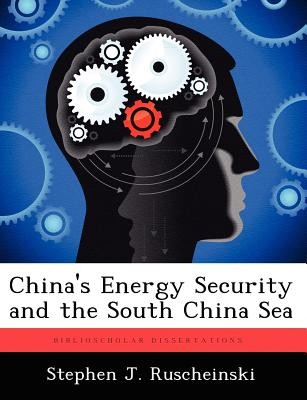
- We will send in 10–14 business days.
- Author: Stephen J Ruscheinski
- Publisher: BiblioScholar
- ISBN-10: 1249363950
- ISBN-13: 9781249363958
- Format: 18.9 x 24.6 x 0.7 cm, softcover
- Language: English
- SAVE -10% with code: EXTRA
China's Energy Security and the South China Sea (e-book) (used book) | bookbook.eu
Reviews
Description
The extraordinary economic rates of growth demonstrated in the Asia-Pacific region over the past decade are inextricably linked to an increase in energy consumption within the region. As annual consumption of energy resources continues to rise in order to fuel growing economies, energy demand in most countries has developed into energy need. Competition for energy in the name of energy security can take many forms. Contested claims, such as those driven by overlapping exclusive economic zones in maritime areas, have generally been settled through diplomacy. At other times, skirmishes involving military forces have resulted where words have failed. A textbook example of using the military in support of energy security is provided by China and its actions in the South China Sea against Vietnam and the Philippines. This study questions whether China believes access to the South China Sea is of vital interest, one directly connected to the survival, safety, and vitality of its future. Initial discussion focuses on review of Chinese economic and energy policies. Subsequent analysis details Chinese behavior within the broader context of international relations theory, concluding with discussion on Chinese policy, resource, and sovereignty issues specific to the South China Sea.
EXTRA 10 % discount with code: EXTRA
The promotion ends in 17d.03:24:29
The discount code is valid when purchasing from 10 €. Discounts do not stack.
- Author: Stephen J Ruscheinski
- Publisher: BiblioScholar
- ISBN-10: 1249363950
- ISBN-13: 9781249363958
- Format: 18.9 x 24.6 x 0.7 cm, softcover
- Language: English English
The extraordinary economic rates of growth demonstrated in the Asia-Pacific region over the past decade are inextricably linked to an increase in energy consumption within the region. As annual consumption of energy resources continues to rise in order to fuel growing economies, energy demand in most countries has developed into energy need. Competition for energy in the name of energy security can take many forms. Contested claims, such as those driven by overlapping exclusive economic zones in maritime areas, have generally been settled through diplomacy. At other times, skirmishes involving military forces have resulted where words have failed. A textbook example of using the military in support of energy security is provided by China and its actions in the South China Sea against Vietnam and the Philippines. This study questions whether China believes access to the South China Sea is of vital interest, one directly connected to the survival, safety, and vitality of its future. Initial discussion focuses on review of Chinese economic and energy policies. Subsequent analysis details Chinese behavior within the broader context of international relations theory, concluding with discussion on Chinese policy, resource, and sovereignty issues specific to the South China Sea.


Reviews